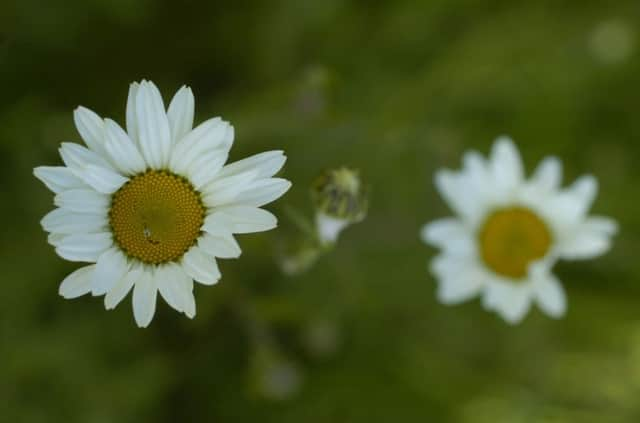RSPB is fighting to reconnect children to nature
This article contains affiliate links. We may earn a small commission on items purchased through this article, but that does not affect our editorial judgement.


Making daisy chains was almost a rite of passage for children like me … children of the 1970s.
Amongst the daisies was where my love of nature began. Seated among the wild flowers of a meadow with the bright yellow faces of daisies stretching towards the sun, brings back happy and enduring memories.
Advertisement
Hide AdAdvertisement
Hide AdDaisies are simple yet wonderful flowers; simple in that they grow abundantly and are just white and yellow. Yet they are not. A little time spent observing them will show that purples and violets underpin their petals and they open and close in the morning and at night (hence the name daisy, a corruption of “day’s eye”). Their sunny face is a magnet for butterflies and bees that help to ensure vital pollination. As a child, they opened up a world of wonder for me and allowed me to celebrate with a garland of daisies.
But whilst this was a relatively common experience some 40 years ago, it is sadly becoming much rarer in our modern world. Recent research has found that just 10 per cent of children played outdoors compared with 40 per cent in the 1970s.
Unfortunately now, to a parent, outside is where danger lurks. Increasingly, it seems that people with children prefer to keep them in very close proximity to their home or even in their house for leisure – turning instead to the apparent safety of tablets, TVs, computers and games consoles.
I am now part of a conservation movement working with RSPB Scotland to bring back those wonderful natural experiences for children and their families, those which bring us closer to nature and help us to understand our place in it. In the trade, we call it connecting to nature experiences.
Through the RSPB Scotland’s learning programmes we know that we engage and enthuse children about nature. But in doing so, we are startling to find many children who do not know that in winter deciduous trees are not dead or that there are so many species here in the UK that are in decline.
Threats to species seem to exist in the minds of children (and many adults) only in far off places like the rainforests of South America or the plains of Africa where the rhinos and elephants used to roam in abundance.
We need to teach children about nature on their doorstep and the threat of habitat loss here in Scotland. Fundamentally, we need to allow children to explore and have adventures outdoors; to feel, touch and smell nature and to build emotional attachments to the natural world on their doorsteps so that they feel a need to conserve it and save it from disappearing. These will then be the children who will have enough of a passionate connection to a place to want to save it from needless destruction; nature needs these children and these children need nature. The State of Nature report (2013) has shown nature is in trouble and emphasised this paucity of engagement and connection with the natural world.
Our ancestors were in tune with nature for a reason, they needed it for survival. They learned to work sustainably with natural resources to ensure they had food and shelter. But in the modern world that critical link and dependence has become obscured by marketing and consumerism. We have lost our way, relying instead on supermarkets and technology as our saviour. I worry that soon we won’t know what do without a tablet. It worries me greatly that the junior Oxford English Dictionary has seen fit to remove certain words including dandelion, buttercup and conker – children of my era know that such natural things gave them superpowers: I could tell the time with my dandelion clock; I could tell if you liked butter by holding a buttercup under your chin; I could become a hero in my class with my unbreakable conker. These words are no longer in the junior dictionary and as the esteemed nature writer Robert Macfarlane suggests, removing such words will lead to attention deficit. We are already seeing nature deficit in 21st century children and a combination of the two will be disastrous for the future of the natural world.
Advertisement
Hide AdAdvertisement
Hide AdI don’t think there will ever be an app that can save nature but there are children out there waiting for the opportunity to get outdoors, to enjoy and appreciate nature and become the conservationists of the future.
The RSPB is enhancing its work by making our nature reserves more family friendly. In addition, we are actively seeking to develop partnerships with other organisations to promote connections to nature.
• Judy Paul is the education and youth programmes manager for RSPB Scotland, [email protected] or www.rspb.org.uk
SEE ALSO